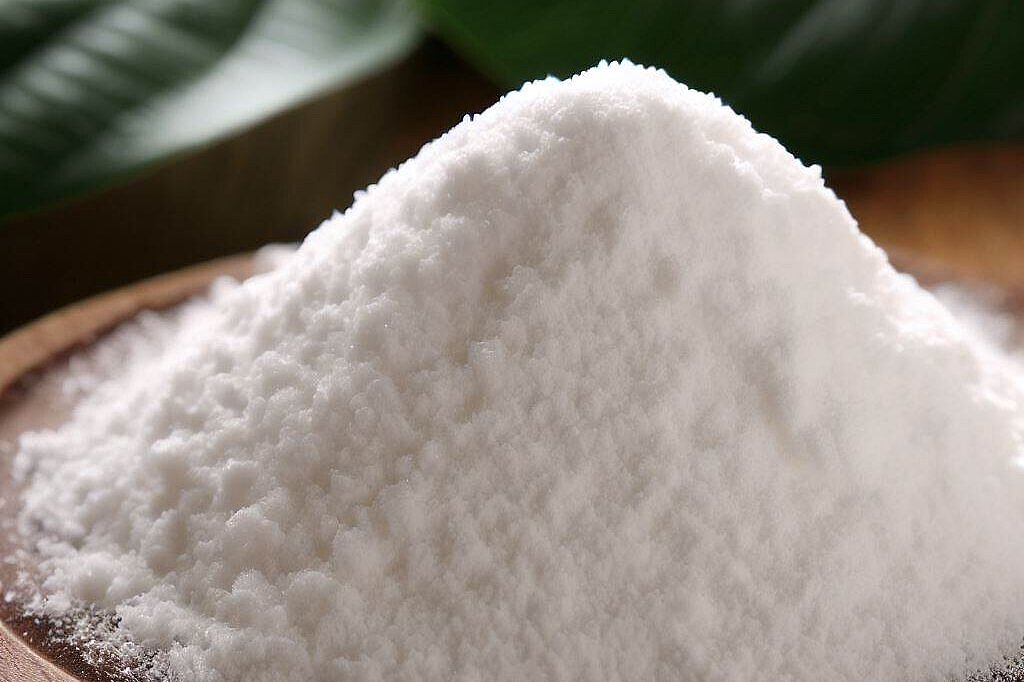1,4-Cineole

What is 1,4-cineole?
1,4-Cineole is a colorless, oily liquid that is solid at room temperature and has a characteristic, cool and slightly pungent odor. Chemically, 1,4-cineole belongs to the oxides and is relatively stable in its structure. This substance is hardly soluble in water, but can be dissolved in alcohol, ether and other organic solvents.
The sources of 1,4-cineole
Although eucalyptus is the best known carrier of 1,4-cineole, many other plant species also contain this substance in varying concentrations. This explains why oils and extracts obtained from these plants often have similar aromatic and medicinal properties.
Benefits of 1,4-cineole for dogs
Respiratory diseases
1,4-Cineole has been shown to be effective in relieving symptoms of respiratory diseases. Its anti-inflammatory and expectorant properties can help to ease breathing and clear sinuses.
Antimicrobial effect
Studies have shown that 1,4-cineole has antimicrobial properties that can be effective against a range of bacteria and fungi. This makes it a potential natural remedy for skin infections and other microbial diseases in dogs.
Disadvantages and precautions
Toxicity
Despite its many benefits, 1,4-cineole can be toxic to dogs in high doses. Symptoms of overdose can include vomiting, diarrhea, lethargy and even neurological disorders. It is therefore essential to limit use to safe levels and preferably under veterinary supervision.
Allergic reactions
Some dogs may be sensitive to 1,4-cineole and develop allergic symptoms such as skin rashes, itching or breathing difficulties. Watch your dog closely when introducing products containing 1,4-cineole.
1,4-Cineole offers an interesting mix of benefits and potential risks to your dog's health. While its antimicrobial and expectorant properties can be supportive when used correctly, it is important to monitor dosage carefully and watch for signs of a negative reaction. As with any natural remedy or supplement, it is advisable to seek professional veterinary advice before using 1,4-cineole-based products on your dog. The health and welfare of your four-legged friend should always come first.
Properties 6
Are you looking for other ingredients with a specific property?
Just click on them to find more.
If you notice any signs of hypersensitivity or poisoning in your dog, you should see your vet immediately. We are not a substitute for a vet, but we try to be as accurate as possible. Every dog reacts differently and we recommend you get a second opinion or consult your vet if in doubt.
Stay healthy and take good care of your four-legged friend!😊
Similar to 1,4-Cineole
Pinenes are organic compounds that belong to the terpene family and are widespread in nature. There are two types of pinenes: alpha-pinene and beta-pinene. Both are responsible for the...
Camphor is a white to yellowish crystal that has a strong, aromatic smell. It belongs to the terpenes, a group of organic compounds found in many plants. Camphor works in various ways: It...
Limonene is a colorless liquid that is mainly found in the peel of citrus fruits. It is a terpene responsible for its strong citrus scent and is used in aromatherapy and as a natural solvent in...
Myrcene is a naturally occurring monoterpene found in high concentrations in the essential oils of various plants and fruits, such as hops, mangoes, bay leaves, thyme and lemongrass. It is known for...



